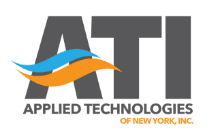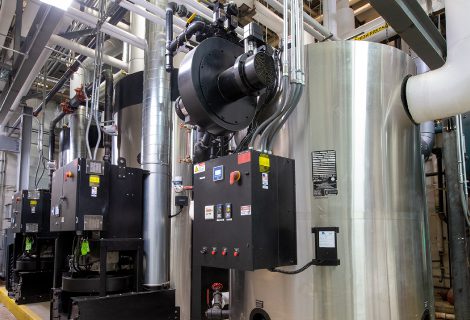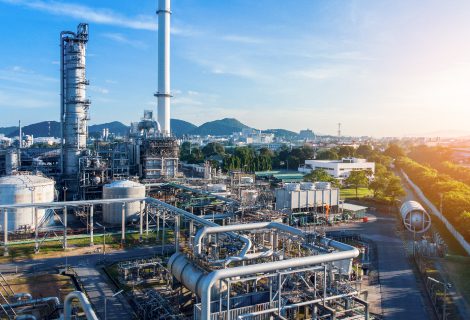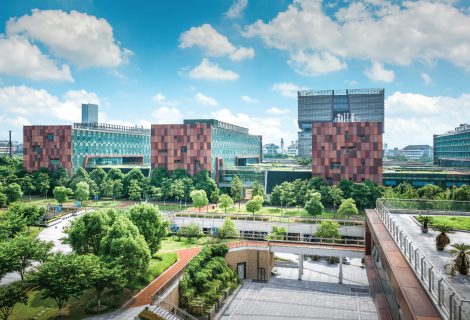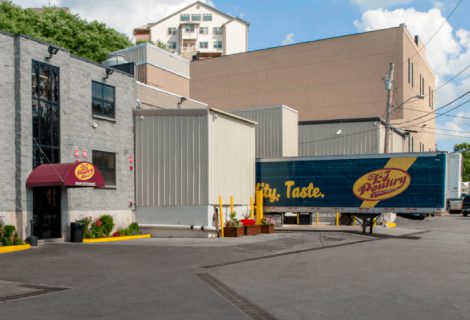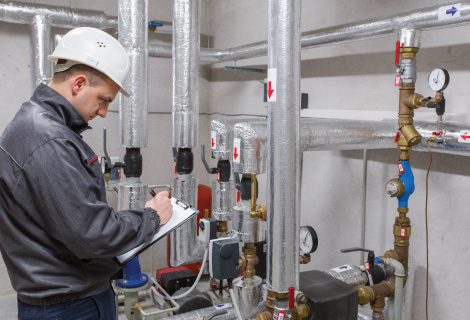Achieving Decarbonization and Net-Zero Goals
As industries set their sights on ambitious decarbonization objectives, the demand for low-emission boiler technologies is on the rise. The race towards achieving Net-Zero emissions is pushing the adoption of cutting-edge boiler room solutions. ATI of NY champions this movement with leading products including Precision Boilers, Fulton hybrid electric heating systems, and Dalrada heat pumps, which are instrumental in promoting decarbonization. Investing in the appropriate systems and technology now is critical to achieving Net-Zero goals, offering substantial emissions reductions and future energy savings.
Journey to Net-Zero
Net-Zero emissions initiatives aim to significantly reduce the harmful effects of greenhouse gas emissions with methods, solutions, and technology that effectively reduce emissions and remove carbon from the atmosphere. New temperature control technology and innovative, advanced boiler systems can help your business align with Net-Zero goals.
Embarking on the journey to Net-Zero may involve replacing outdated heating and cooling systems with ones that:
- Eliminate or reduce dependence on fossil fuels
- Make use of renewable energy (wind, solar, and hydro)
- Embrace innovative refrigerants to boost efficiency
- Use carbon capture and storage technology
- Exceed the requirements of local and national regulators
Fortunately, there are several effective strategies to decarbonize your boiler operations, along with excellent options to support your transition to sustainable heating and cooling.
Decarbonization Strategies for Boilers
Decarbonizing your boiler operations can be achieved through various methods. At ATI, we offer practical retrofit and replacement solutions, including fully electric boilers from Precision Boilers, hybrid electric heating systems from Fulton, and commercial heat pumps from Dalrada Climate Technology, among many other options. Below are some of the benefits of each recommended solution.

Precision Boilers
- A sustainable lineup that includes electrode boilers, steam boilers, hot water boilers, and water heaters
- Industry-leading efficiency: Up to 99.7% for select models, compared to 65% for many other boilers
- For electrode boilers, no local emissions
- Lowers energy costs
- Low installation and maintenance costs
- High output capabilities

Fulton Hybrid Electric Heating Systems
- Capable of maintaining 99+% efficiency consistently, regardless of return water temperatures, system conditions, or firing rates
- Exceptional load-matching capabilities
- No need for pre- or post-purge
- Supports ultra-high turndowns (up to 100:1) with SCR controls
- Includes a pressure vessel that functions as a water tank with fully submerged heating elements

Dalrada Heat Pumps
- Carbon dioxide (CO₂) refrigerant
- Impressive temperature range: 32°F to 185°F
- COP in excess of 7.5
- Cooling and heating without greenhouse gas emissions
- Suitable for use even in extreme weather conditions
- Retrofittable and modular design
- Easy installation
Diversify Fuels with the Thermal Leverage Tri-Fuel Boiler
 Another solution to support Net-Zero initiatives is to switch or diversify fuels. An excellent choice for this method is the Thermal Leverage Tri-Fuel Boiler, which can burn biogas, natural gas, digester gas, manufactured gas, and hydrogen blends (up to 30%). The Thermal Leverage Tri-Fuel Boiler can also operate on electricity alone or a combination of electricity and gas or oil. When operating on electricity alone, it boasts zero greenhouse gas emissions and 99% efficiency.
Another solution to support Net-Zero initiatives is to switch or diversify fuels. An excellent choice for this method is the Thermal Leverage Tri-Fuel Boiler, which can burn biogas, natural gas, digester gas, manufactured gas, and hydrogen blends (up to 30%). The Thermal Leverage Tri-Fuel Boiler can also operate on electricity alone or a combination of electricity and gas or oil. When operating on electricity alone, it boasts zero greenhouse gas emissions and 99% efficiency.
Switching from high-carbon fuels to alternatives like natural gas, hydrogen blends, and low-carbon blended fuels is a viable choice. Installing Low-NOx burners can significantly reduce nitrogen oxide emissions. Additionally, conducting periodic energy audits and updating equipment, tools, and technology can further minimize your environmental impact.
Innovative Emission Control Technologies
Several new technological advancements and methods are also available to support your Net-Zero goals and reduce the environmental impact of your boiler systems, including:
- Variable Speed Drives – Installation of variable speed drives allows your boiler system to monitor and adjust the amount of power it uses to operate, conserving power in the process and increasing efficiency.
- Carbon Capture and Storage (CSS) Technologies – Particularly useful for coal-fired boilers, CSS technology can be applied to existing systems to capture emissions to be stored underground or repurposed. This can effectively offset the emissions created during boiler operation.
- Solar Thermal Integration – Conventional boilers as well as hot water cylinder systems often work well with solar thermal integration to improve efficiency. The energy produced from solar panels can be used to support boiler processes.
- Performance Monitoring Tools – You can also implement temperature control monitoring technology, including sensors and IoT tools, to provide real-time updates on boiler performance. This allows you to remotely adjust settings based on performance data.
